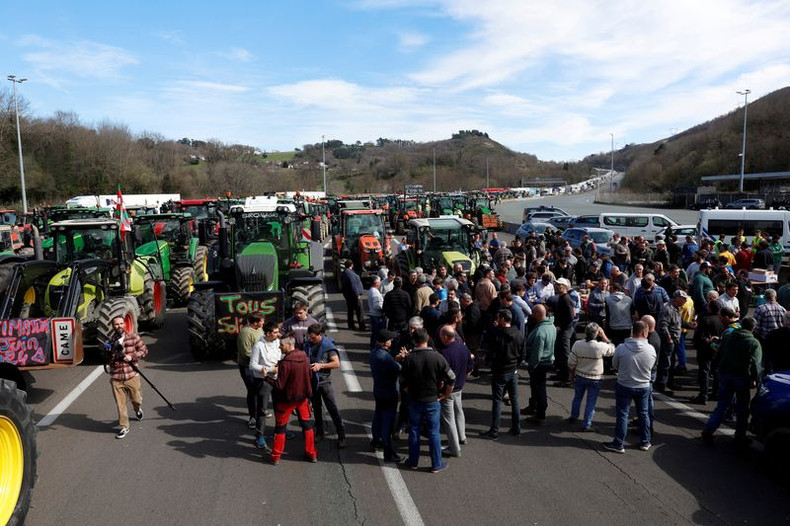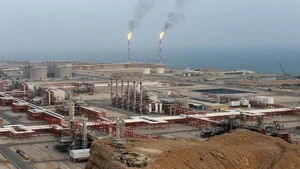EU Economy Commissioner Paolo Gentiloni, stressed “the urgency of the climate crisis”, citing satellite data showing that global temperatures have already surpassed an internationally agreed uptick limit of 1.5 degrees Celsius, established in the Paris Agreement.
According to the latest report by the Potsdam Institute for Climate Impact Research (PIK), annual global damages caused by climate change are estimated at 38 trillion USD, equivalent to 17% of global GDP.
Most regions will suffer losses, especially North America, Europe, South Asia and Africa.
Ask ourselves if we regret the decision taken four to five years ago, to have the green deal as the main profile of the von der Leyen Commission: my answer is no.
EU Economy Commissioner Paolo Gentiloni
“Ask ourselves if we regret the decision taken four to five years ago, to have the green deal as the main profile of the von der Leyen Commission: my answer is no,” EU Economy Commissioner Paolo Gentiloni said of the five-year term that began in late 2019.
Gentiloni’s statement was in response to many concerns that have been made about the economic impact of the Green Deal.
Farmers in several EU member states have protested against new environmental regulations, and the future of the EU Nature Restoration Law remains uncertain.
Therefore, the EU will be flexible in implementing the Green Deal. The EU Economy Commissioner said there are areas where the bloc should “reassess the pace of transition and revise the policies pursued: agriculture may be a characteristic example”.
To calm the wave of protests by farmers across the continent, the European Parliament (EP) recently approved a proposal to weaken the green conditions attached to the bloc's subsidies for farmers. To receive subsidies, farmers would no longer have to leave 4% of their land fallow to support biodiversity.
Farmers could carry out crop diversification, rather than crop rotation, and countries can introduce exemptions from the rules if they face difficulties applying them, and in cases of extreme weather.
Small farms below ten hectares will also be exempt from control checks or penalties for not complying.
 |
| French and Spanish farmers block the motorway border between France and Spain during a protest over price pressures, taxes and green regulation, grievances shared by farmers across Europeat Biriatou, France, March 7, 2024. (Photo: REUTERS) |
Previously, farmers in many countries including France and Poland staged protests against what they consider, excessive regulations, including competition from cheaper imports.
The protests raise concerns among EU leaders as European elections will take place this June.
However, lawmakers and environmental campaigners have criticised the relaxation of green regulations as unhelpful to European farmers, who face increased pressure due to extreme weather from climate change.
The Green Deal also faces difficulties in mobilising financial resources. Many argue that the approved restrictions on budget deficits choke public investment, signalling a return to austerity.
However, Gentiloni cited hundreds of billions in investment needed each year to meet the bloc’s green and digital goals.
As Europe's leading economy, Germany calls on countries to increase their contributions to climate protection.
German Chancellor Olaf Scholz said that Germany is on the right track in reducing emissions and expanding renewable energy.
In 2023, Germany's greenhouse gas emissions decreased by nearly half compared to 1990, and solar and wind energy were also strongly expanded.
The German Chancellor called on countries that are major carbon emitters to pay more for climate protection and climate change adaptation efforts in other countries.
The German Government pledged its ongoing support for poorer countries and those particularly threatened by climate change and advocated the further development of the international financial architecture, which includes reforming the World Bank and other multilateral development banks.
These institutions, he said, would also have to be integrated into the economy to enable future investments to be orientated towards climate targets.
The global energy transition, he said, could only succeed given sufficient private investment in environmentally friendly energy production facilities and technologies.
The difficulties in implementing the EU Green Deal show that the fight against climate change in the continent and the world always faces many challenges because the green transition process requires several economic sectors to trade off benefits for the common goal.
However, no matter how difficult it is, European leaders will steadfastly implement the strategy because only the efforts and determination to cut greenhouse gas emissions and prevent the Earth from warming can help EU countries protect the green planet and their common home.
















